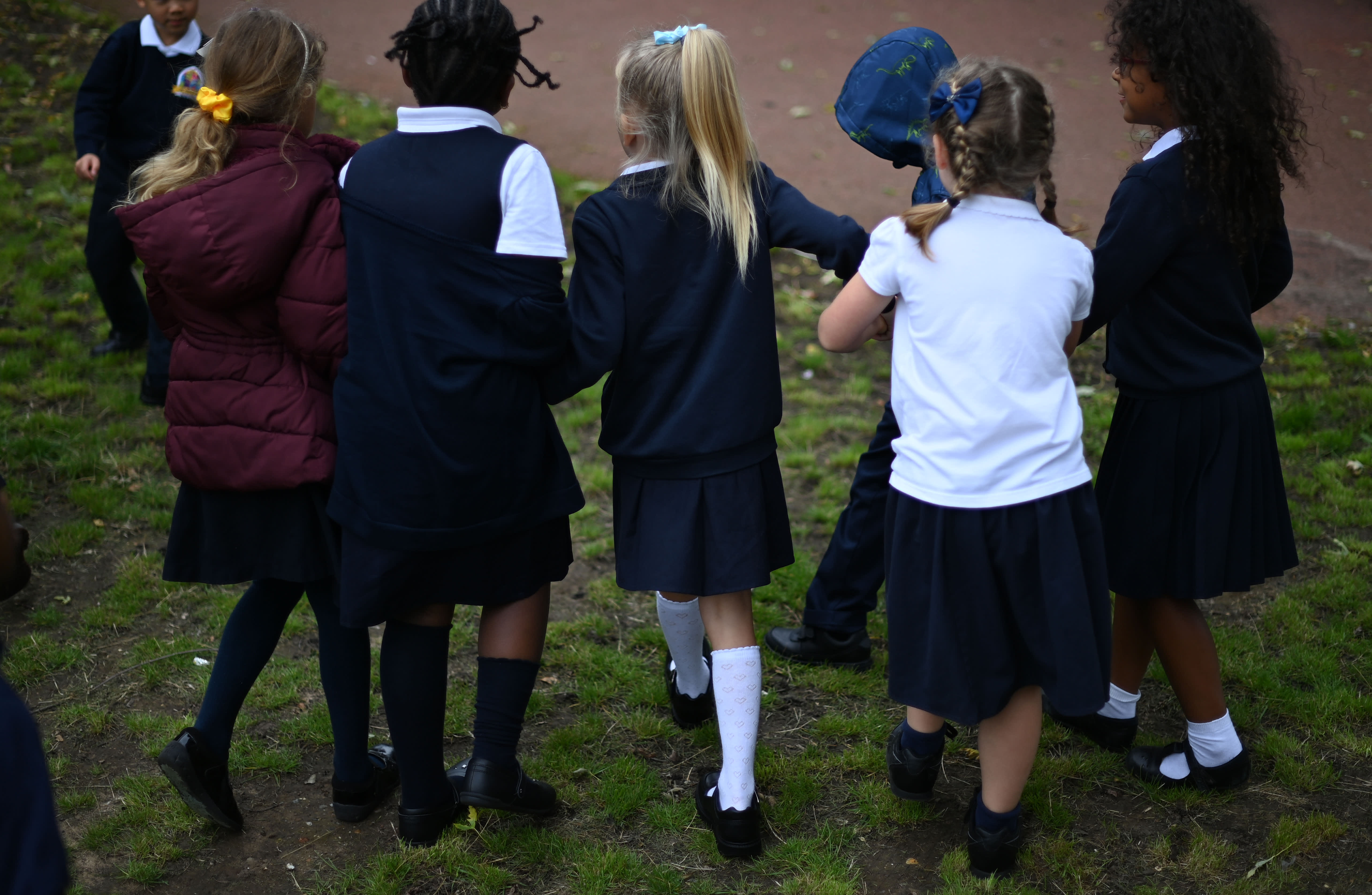There’s no extra Covid risk from living with kids, study finds

Students play during their break on their first day of school after the summer break at St Luke’s Church of England Primary School in East London on September 3, 2020.
DANIEL LEAL-OLIVAS | AFP | Getty Images
If you live with children, you’re not at a greater risk of contracting Covid-19, according to a large study carried out in the U.K.
In fact, living with children was associated with a lower risk of dying from the coronavirus compared to those that didn’t live with children, researchers from the University of Oxford and London’s School of Hygiene and Tropical Medicine found.
They investigated 9 million adults in the U.K. under the age of 65 between February and August to see whether the risk of infection with Covid-19, and the risk of severe outcomes from having the virus, was different for those living with and without children.
The researchers found that living with children under the age of 11 “was not associated with increased risks of recorded Covid-19 infection, Covid-19 related hospital or ICU (intensive care unit) admission but was associated with reduced risk of Covid-19 death.”
However, living with children aged 12-18 years was associated with a small increased risk of recorded coronavirus infection, the study noted, but not associated with other Covid-19 outcomes.
Living with children of any age was associated with a lower risk of dying from non-Covid-19 causes, the researchers found.
The study also looked at an additional 2.5 million adults above the age of 65 and also found that “there was no association between living with children and outcomes related to Covid-19.”
Researchers highlighted that parents are known to have lower all-cause mortality than individuals without children, noting that the “protective mechanisms of having children are likely to be multifactorial, including healthier behaviours among parents, e.g. in relation to smoking and alcohol, and self-selection of healthier individuals becoming parents.”
They also said “beneficial changes in immune function from exposure to young children have been proposed to cause reduced mortality among parents.”
Wrangling over schools
The study comes amid ongoing uncertainty over the role of children and adolescents in the transmission of the coronavirus. But the researchers in this study noted that there was “accruing evidence” that suggests that, when it comes to Covid-19, “lower susceptibility and possibly lower infectiousness among children means that they may not transmit infection more than adults.”
There has been heated debate over whether schools and colleges should remain open during national lockdowns, with millions of kids having to stay at home when governments first locked down their economies in spring.
Amid a second wave of coronavirus infections, many countries have chosen to keep schools open wary of the harm to children if their school education is halted once again.
In the U.K. for example, schools, colleges and universities are to remain open when England likely enters a second lockdown on Thursday. The government argued that the harm that would be caused to children and their education from closing schools outweighs the possible risks to them, and their caregivers, from the virus.
The researchers in this latest study concluded that “for adults living with children there is no evidence of an increased risk of severe Covid-19 outcomes” and that, when it comes to school closures they had “found no evidence for a reduction in risk following school closure.”
“These findings have implications for determining the benefit-harm balance of children attending school in the Covid-19 pandemic,” they said.
The study has not yet been published in a medical journal or peer-reviewed and it received funding from the Medical Research Council, part of U.K. Research and Innovation, a non-departmental public body sponsored by the British government’s Department for Business, Energy and Industrial Strategy.




